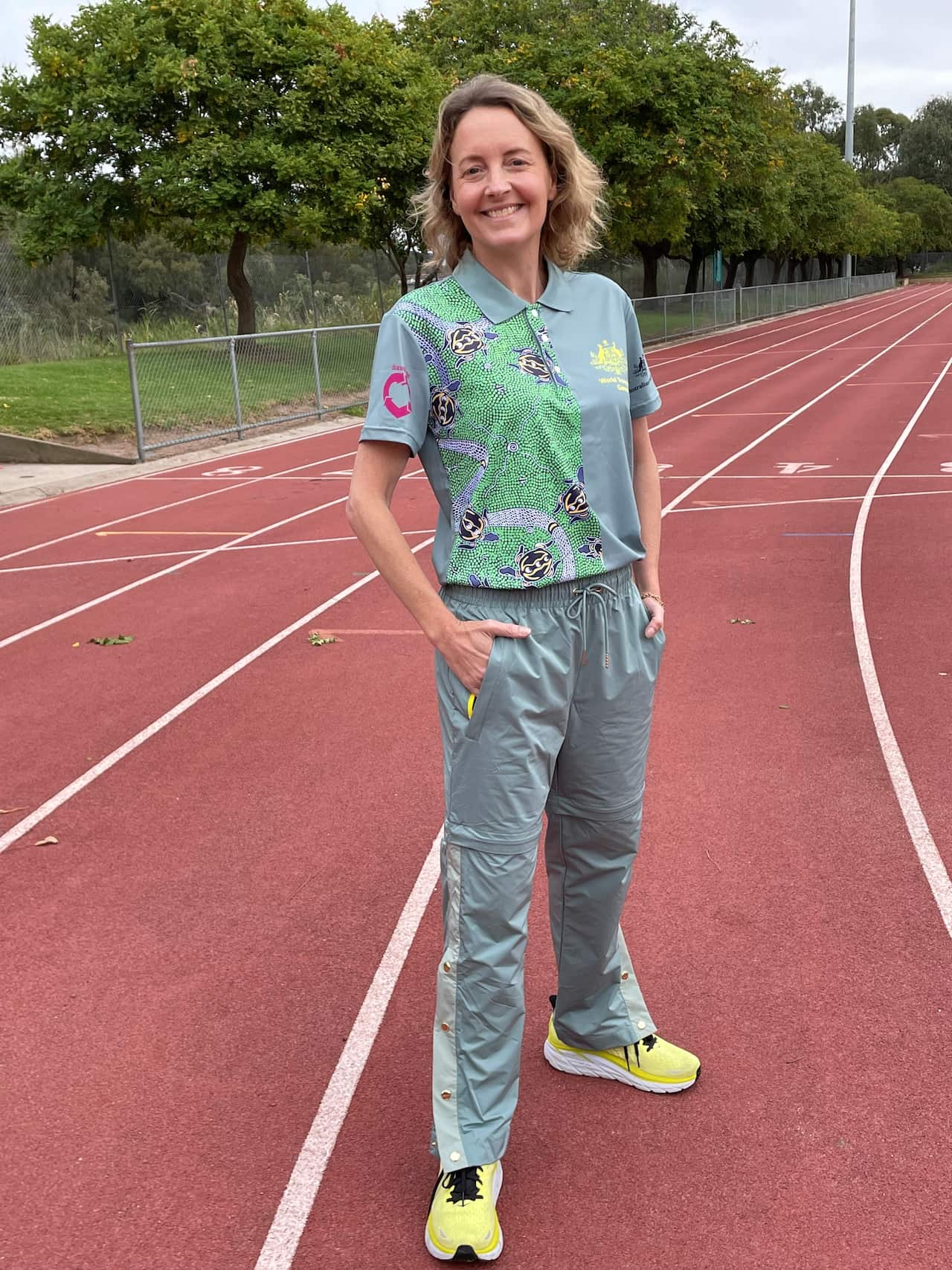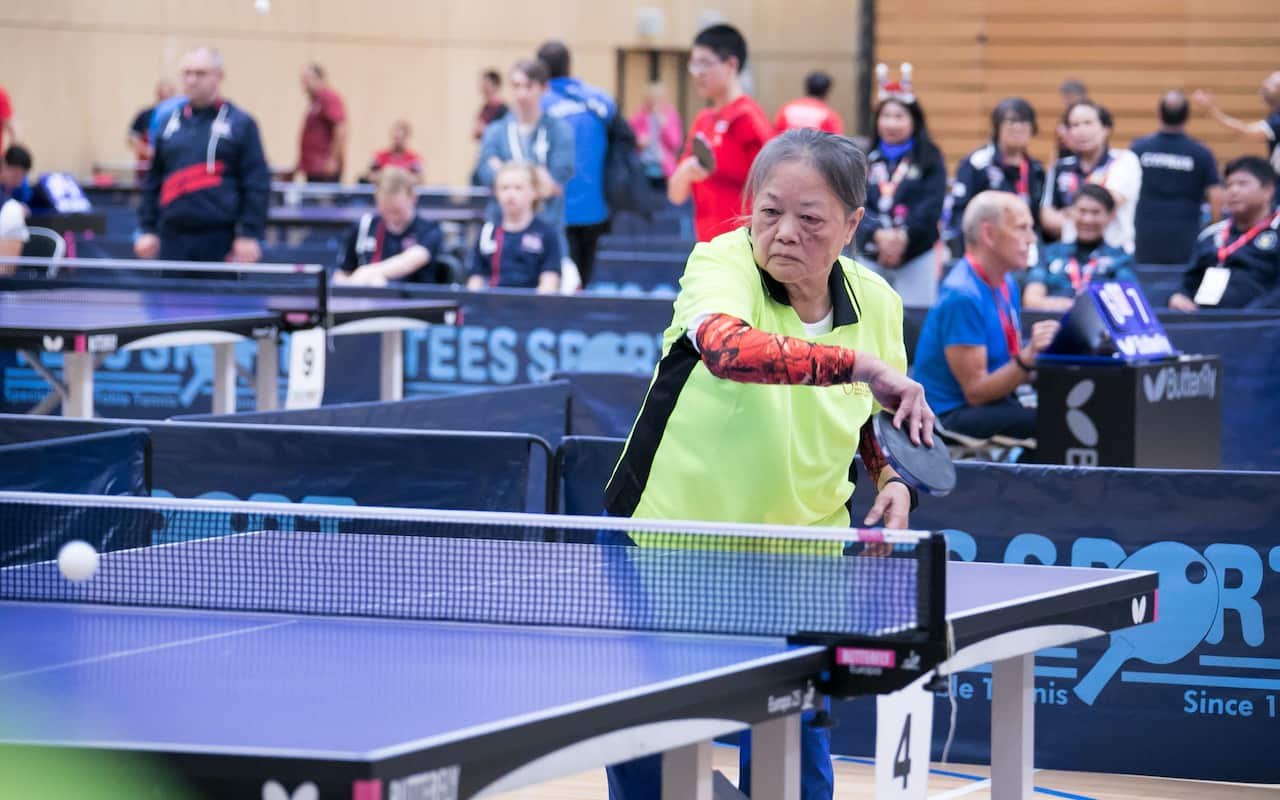Key Points
- The 24th World Transplant Games will be held in Perth from April 15 – 23
- Over 1500 organ recipients from 50 countries will raise awareness about organ donation
- Only 36 per cent Australians are registered to the national registry for organ donation
From his house in a little village nestled amidst the Italian Alps, Stefano Dalvai is getting ready for the 24th World Transplant Games that will be held in April in Perth.
In this edition, 1500 organ recipients from 50 countries will compete in 17 sports to prove that a healthy life is possible after a transplant.
Held every two years, these games are the world’s largest awareness event about organ donation.
It is an event for recipients, donors and their families and supporters from every corner of the world to celebrate life together.
The first World Transplant Games were held in 1978 in Portsmouth in the UK.
Australia is hosting them for the third time, after Sydney in 1997 and the Gold Coast in 2009.
Rebirth after transplant
Mr Dalvai hit rock bottom before he got this far.
“This year, I will celebrate nine years since my bone marrow transplant – nine years since my rebirth,” he tells SBS Italian.
Mr Dalvai was diagnosed with acute myeloid leukaemia at the age of 26.
He is now all set to participate in the 5 km race at the games.
“Overnight, my life plans fell apart and my dreams were shattered. I spent six months in a sterile room to prevent an infection that would have killed me,” he recalls.
After two rounds of chemotherapy, he received a bone marrow transplant.
“I was reborn, thanks to a donor. It was the beginning of a new life,” Mr Dalvai adds.
During his long recovery, he took his journey on the road.
“Running has taught me to hold on when my legs and my head wanted to give up.
“In my journey towards recovery I discovered limits that I didn't know I had and just like running, you push yourself to overcome them,” he says.
Thanks to running, I got to know my new self and new and distant places, like Australia, where I soon will be.STEFANO DALVAI
So Pui Yee, a transplant sports legend from Hong Kong, is also headed to Perth for the World Transplant Games.
The 75-year-old woman has suffered renal failure twice, had two transplants 12 years apart, and has won 22 medals.
Winning surely brings joy.SO PUI YEE
“But much more happiness comes with the fact that after all these COVID years, I can get to greet and shake hands with teammates, partners, volunteers and other athletes from all over the world.
“And yes, my opponents in the games,” she tells SBS Italian.
“And seeing all of them healthy, lively and sporty is truly a blessing. I enjoy the journey of sports more than anything else,” she adds.
Rehab in style
Melbourne-based Jade Galbally will be competing in the 50 m and 100 m backstroke and freestyle swimming competitions.
She isn’t sure of her chances of winning a medal.
Ms Galbally is the founder of TX Active, an activewear business that she started on her way to recovering from a double lung transplant in 2018.

Ms Galbally has designed and made the new parade uniform for the Australian teams through her company TX Active. Credit: Image provided.
“I don’t think I intend to do very well. I have a few injuries and some of the preparation required is tricky when you have side effects from medications,” she remarks.
Nonetheless, the games in Perth will be particularly special for her since the Australian team will be wearing the new parade uniform that she designed and made.
She was born with a genetic condition called cystic fibrosis for which she needs constant medical treatments and physiotherapy.
“When I was born, the life expectancy (for those suffering from this condition) was till teenage. Growing up, things got better and it increased to late 20s or early 30s,” she says.
Very recently, there’s a new drug that has added 40+ years to people’s life expectancy.
“It is amazing to have seen it in my lifetime because it was never considered possible when I was born,” she adds.
But the drugs were not available in Australia by the time she needed the transplant, so she had to undergo surgery and rehabilitation.
“Once you are discharged from the hospital, you need to do three months of rehabilitation. You must go thrice a week to build back your strength,” Ms Galbally says.
“When I was doing my rehab, I noticed that people were wearing baggy, old trackpants or old lace-up leather shoes, not good exercise outfits.
I was wearing exercise clothing and people thought that I was not a transplant patient.JADE GALBALLY
She also explains therapy can put a heavy financial burden on the patient who might not have the money to spend on activewear, especially for those who have to travel interstate for treatment and need to pay for accommodation and daily expenses for a long period of time.
For this reason, for every two sales of her active wear, she donates the same item to someone who has received a transplant to be able to undergo their rehab comfortably, look good and feel good.
People are excited to represent Australia and knowing that at the opening ceremony parade, they will be wearing uniforms that my company has produced, makes me feel fantastic.JADE GALBALLY

Ms So Pui Yee has suffered renal failure twice, had two transplants 12 years apart, and yet has so far won 22 medals at the international level. Credit: Transplant Australia
“Getting this far is a great achievement,” says Mr Dalvai who will take part in the games for the first time.
“We will be there to convey a message of hope to those who look at us from a hospital room and to their families,” he adds.
Often, sickness affects the whole family, not just the patient. In sickness as in sport, if you all fight together, you can achieve a greater goal.STEFANO DALVAI
“We wish that all Australians understand the power of organ donation in transforming lives and register to help someone else,” says Chris Thomas, CEO of Transplant Australia and President of the World Transplant Games.
Australia is a world leader in transplantation and caring for transplant recipients and helping them on their journey back to the fullness of health, Mr Thomas explains.
“Recipients here are also driven to help the next generation of people needing a transplant by promoting organ and tissue donation and showing the world what can be achieved with a transplant,” he adds.
Thirty-six per cent of Australians are registered to the national registry for organ donation. (https://www.donatelife.gov.au)
Our ambition is to double these rates and that will significantly increase organs available for all those needing them.CHRIS THOMAS
“Getting this far for me is a great personal achievement, but it will mostly be a way for me to convey a message of hope to those who will be watching us from a hospital room and to their families,” says Mr Dalvai.
Today he is the proud father of three-year-old twin daughters, Adele and Vittoria, and never misses a chance to use sport as his platform.
“I promised my donor I will take him with me until the finish of every run and up the top of every mountain I climb,” Mr Dalvai concludes.
Share
